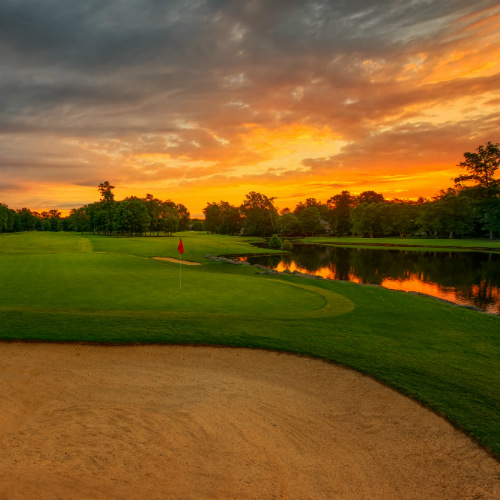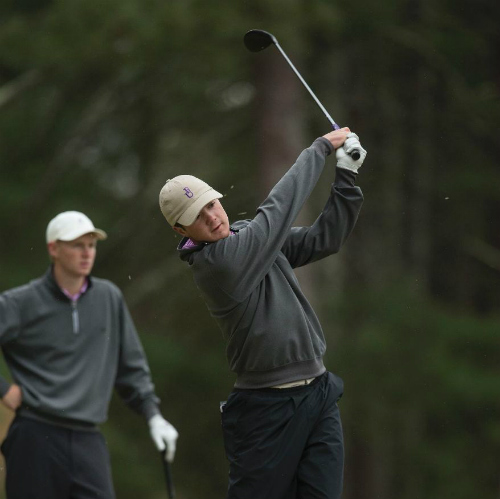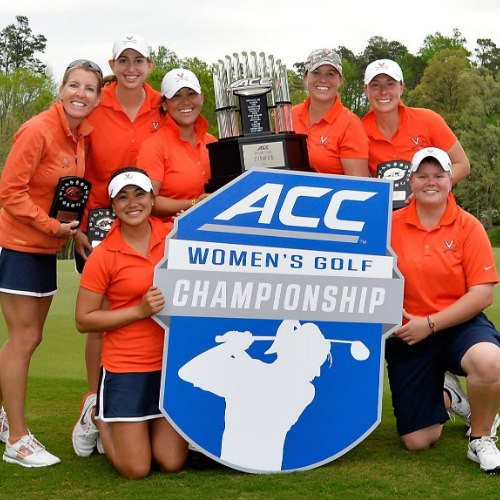
To adapt for survival, a new business model for golf clubs has emerged — and McConnell Golf has set the standard.
Packing his luggage prior to February’s 2016 Carolinas PGA Merchandise Show in Greensboro, North Carolina, McConnell Golf Director of Golf Brian “Boomer” Kittler couldn’t help but chuckle.
Kittler was amused as he recalled the same industry show a decade earlier, in Myrtle Beach, South Carolina, where he could freely roam the convention center aisles in relative anonymity. “Ten years ago, I could get in the merchandise show and talk to everybody and get around in just a couple of hours,” Kittler says. “Now I’ve got to bob and weave. I try to hide in the corner sometimes. As soon as I get there … well … it’s hard to leave. Everyone wants a piece of you. McConnell Golf is a valued commodity in the Carolinas and people want to be a part of what we’re doing, so that’s exciting. It’s fun.”
Indeed, during an extended, challenging period in the golf industry that has adversely affected private clubs as much as any other sector, the growth of McConnell Golf and its impact has emerged as one of the game’s most positive stories.
The story dates back to early December 2003, when McConnell Golf became owner of Raleigh Country Club (RCC) and its centerpiece golf course, the final design in the storied career of architect Donald Ross. An avid low-handicapper and passionate golfer, founder and CEO John McConnell was not about to watch Ross’ final legacy be turned into a housing subdivision. “I had one of those divine interventions,” McConnell says. “It said, ‘Hey, you need to get involved with this club, because the last thing the city needs is to see this place become something other than a golf club.’”
In Raleigh Country Club, McConnell saw the opportunity to preserve an essential piece of golf history. Built in 1948, RCC had played host to many nationally and internationally recognized tournaments and was located just minutes from the downtown business district and state government complex. McConnell was fully aware that once the last Donald Ross course was gone, it would never be brought back to life.
“I knew it was a special deal,” says McConnell, who grew up on a 100-acre farm in Abingdon, Virginia, attended nearby Virginia Tech, and remains an avid Hokie. “It was just one of those things, with the legacy of Donald Ross and all the club’s history — from a marketing standpoint alone it had a special value in regard to remaking the club’s image.”
McConnell’s previous business successes in the medical software field have been well documented. “We enjoyed leading two great software companies that allowed me to start and expand our golf business,” he says. Now, in the 13 years since acquiring Raleigh Country Club, McConnell Golf has grown its ownership stable to include 12 premier private golf clubs in both Carolinas and Tennessee, while at the same time carving out a sterling reputation: The nearly 700 McConnell Golf employees provide the company’s 4,000-plus members a quality golf experience at each of its award-winning courses.
In addition, as one of the country’s fastest growing, independent private club ownership companies, McConnell Golf has carved a niche as an industry leader in numerous areas including tournament golf and junior golf development, charitable community giving, commitment to sustainability, and health and wellness.
“We’re hoping to prove that our model — our strategy — will work with multiple clubs,” says McConnell. “One thing I found out about golf is you’re dealing with physical properties, maintenance, etc. When you grow in software, you add a few bodies; it’s people and you who can control costs. It’s a little different in golf.” For McConnell Golf, the focus from day one has been providing the membership with a high level of service in each area of the club business, while also offering a quality product. The company’s main goal has been creating a convivial club environment for both the membership and employees so everyone is excited to come to the club every day.
“Every time someone turns into one of our clubs we want them to feel special,” says McConnell, who used his computer software marketing expertise to help spread the word and coin the McConnell Golf mantra: “Pure Golf for the True Golfer.”
Despite its relatively short lifetime, McConnell Golf has quickly gained a reputation as a player to be reckoned with in the golf industry. In an era of economic challenges for private golf clubs — including a market saturated with upscale public courses and residential golf communities — McConnell Golf has defied expectations by generously funding its clubs for capital improvements and upgrades — almost instantly transforming them into more luxurious enclaves.
In addition, McConnell Golf has recently added two new national memberships to its attractive menu of affordable, cutting-edge offerings. “McConnell Golf is focused on bringing value back to the private club experience,” says chief operating officer Christian Anastasiadis. “We pride ourselves on being the market’s best private club value.”
McConnell points to two major factors he considers most important when purchasing a club. “One is how many potential members or rooftops are in a 10-15 minute drive of the property. That is huge,” he said. “Second, what decisions did the boards make in the past that may have not been a good forecast, or decisions we can make now that can make a difference? Having financial capital to invest into the properties, to bring them up to more current status and add other amenities, has been very important, as well.”
In 2012, McConnell was named one of the North Carolina Golf Panel’s “Most Influential Figures in Golf,” a prestigious list compiled every five years that includes North Carolinians who influence the game throughout the state, nationally, and in some cases worldwide, whether in the spotlight or behind the scenes. “I have been truly blessed in that I get to see so many members having a great time when they come to our clubs,” says McConnell. “Our capital saved some great golf courses from extinction and that is a legacy for which we can be proud.”
Another of McConnell’s key strategies in building his private club empire has been to acquire courses designed by some of the world’s greatest architects, and clearly that mission has been accomplished. Holston Hills is the fourth McConnell Golf course designed by the legendary Ross, while the McConnell Golf stable of architects also includes Pete Dye, Tom Fazio, Arnold Palmer, and Greg Norman.
“This business started with no business plan, simply on a whim to preserve Raleigh Country Club from development,” says McConnell. “We have acquired great clubs during the worst economy in 70 years and continued to expand.”
Kittler says that while having “deep pockets” supporting the company is nice, McConnell has another more important attribute. “Having the passion John has for the game of golf is the most important thing,” Kittler says. “He uses his money wisely to make clubs better. For him, it’s all about quality. Good people make a good culture and when people join, they’re joining because of that. People want to be part of something bigger than themselves.”
The appeal is broad. “Families want to join our clubs because there’s something there for everybody, and they believe they are getting the best value for what they are paying,” he says. “But at the end of the day, they’re just happy to be there because all of their friends are at the club. It’s a partnership. I think other clubs focus too much on themselves and the bottom line, and cutting corners. We just focus on the quality of the product. Get good members and let’s have fun.”
Kittler added that McConnell’s father was a farmer who lived on the land and focused on preserving the land. While John McConnell is not a farmer, he is contributing his fair share toward preserving green space. “Owning golf courses is another way he can see these great properties. Instead of them getting buried or bulldozed, he has the ability to preserve the land for the next generation of golfers,” Kittler says. “Instead of golf courses closing down, it’s neat to see someone going in a different direction.”
Along with the success has come an added notoriety in the industry. McConnell Golf representatives are regularly quoted or featured in Golf Business magazine, as well as other business journals and media outlets.
“Over the years there’s no doubt the McConnell brand is getting to be pretty significant around the Carolinas,” Kittler says. “There’s no doubt about it. There’s really no other organization around the Carolinas that is doing what we’re doing. To have privately owned clubs with a single owner, allowing the access we have, no one else is doing it. It’s neat to be in a market to ourselves. The key is to continue to enhance that and create more value within the membership. The long-term plan of what we’re doing has not changed.”
As with their courses, McConnell Golf will create value with quality at every level. “Our goal is to create programs for our membership that continue to separate us from the competition and also continue to grow the game of golf,” Kittler says. “We challenge our people to hire the best possible people, because the more quality people you have on your staff, the better your programs are going to be. I don’t think that’s any secret or inside information, but that’s what we do. Hire good people and get out of their way so they can do what they do.”
Read More






